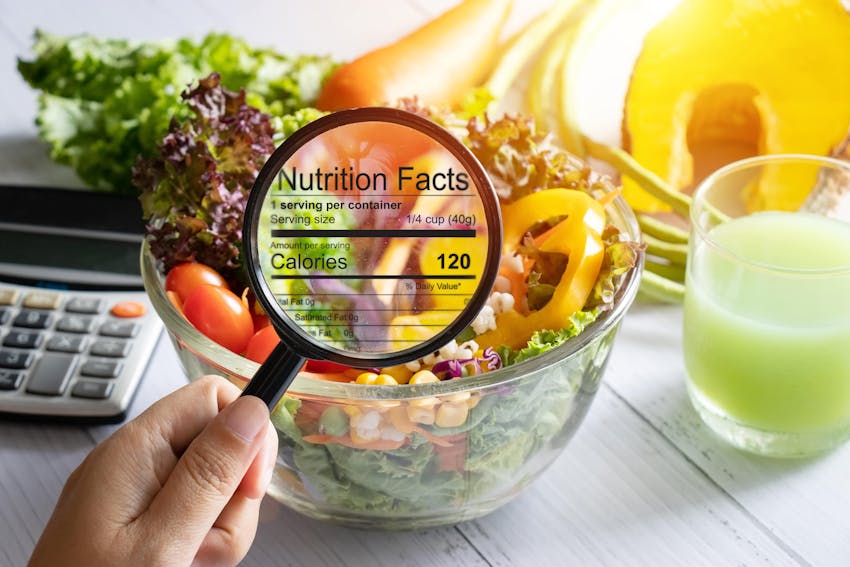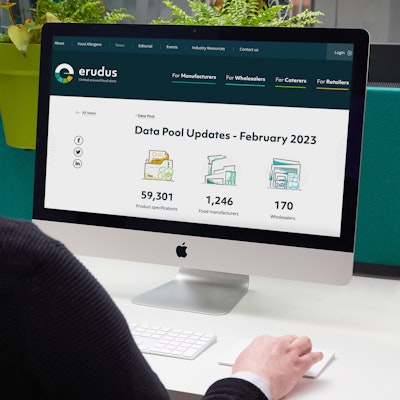Mandatory Calorie Labelling and how Erudus can help
Calorie counting, long the metier of weight watchers, is about to go mainstream.
National obesity has been a growing concern of the Government for some years now – hence the introduction of legislation like the Sugar Tax, and with the COVID-19 pandemic also raising concerns about obesity tackling the problem is now a priority.
One such measure is to make calorie labelling on menus mandatory, for everything up to and including soft and alcoholic drinks.
The idea is to encourage people to make healthier choices when eating out – obesity is one of the biggest health crises the country faces, with almost two-thirds of adults being classed as overweight or obsese. With evidence suggesting that being obese or overweight puts people at greater risk of serious illness or death from COVID-19, tackling the issue has never been more critical.
When this calorie labelling measure comes into play, those in the foodservice industry will have to be the driving force. So in preparation, we’ve put together a quick guide about the main points, and how Erudus can make it much easier for you to implement calorie labelling…
Why focus on calorie labelling?
The government states that nutritional labelling is key to helping people understand their food choices, and knowing the calorie content in our food plays a part in this. On average the portions of food or drink that people eat out, or eat as a takeaway contain twice as many calories as their shop-bought equivalents and therefore Public Health England wants to reduce excessive calories in everyday foods by up to 20% by 2024.
Who will calorie labelling apply to?
The measures will apply to any outlet with over 250 employees where food or drink is prepared in a way that means it is ready for immediate consumption by the person who buys it. Restaurants, cafes, coffee shops, pubs and bars serving food – as well as takeaway outlets and online businesses that sell food or drink ready to be consumed. Cafes and takeaways within larger shops, such as supermarkets and department stores, are also included.
What does calorie labelling cover?
Calorie labelling requirements will extend to all ready to eat food and drink products, including sides, toppings, drinks and ‘specials’, as well as self-service items such as buffets, salad bars, sauces and dressings.
What will you need to display?
When the measures go ahead, you will need to display the kcal and possibly the kilojoule count of each individual item on your menu, for each portion size that is available.
When will it happen?
Calories will be labelled on menus and food labels in out-of-home food businesses from April 2022, though many businesses are choosing to implement it already. Some, including a leading fast food retailer, do this by including calorie information on the menu their customers use to order from. Others, such as a prominent restaurant chain, do not include calorie labelling on their physical menus but do include it on online menus and as an in-house resource staff can check to give customers information if required.
How can you make sure you’re compliant?
The Government report suggests that businesses use the calorie information provided on the packaging of the products they use to create their recipes to work out the calorie content of menu items.
This, of course, is extremely arduous and time-consuming, and that’s where Erudus Recipe Buildercan help. The perfect tool for Caterers, it allows them to plan and curate menus easily and efficiently by keeping track of ingredients and costs per serving, and automatically displays all the recipe’s allergen and nutritional information (including calorie content) in one place.
Basically, Recipe Builder aggregates the calorie content of any product or recipe for you, with adjustments available for factors like portions. Simply select your ingredients from the Erudus Data Pool (or add your own customised ingredients) and go. You can download and print the information too – perfect for keeping records to hand.
Visit the Recipe Builder Solutions page to find out more, or contact our Support Team via support@erudus.com.



